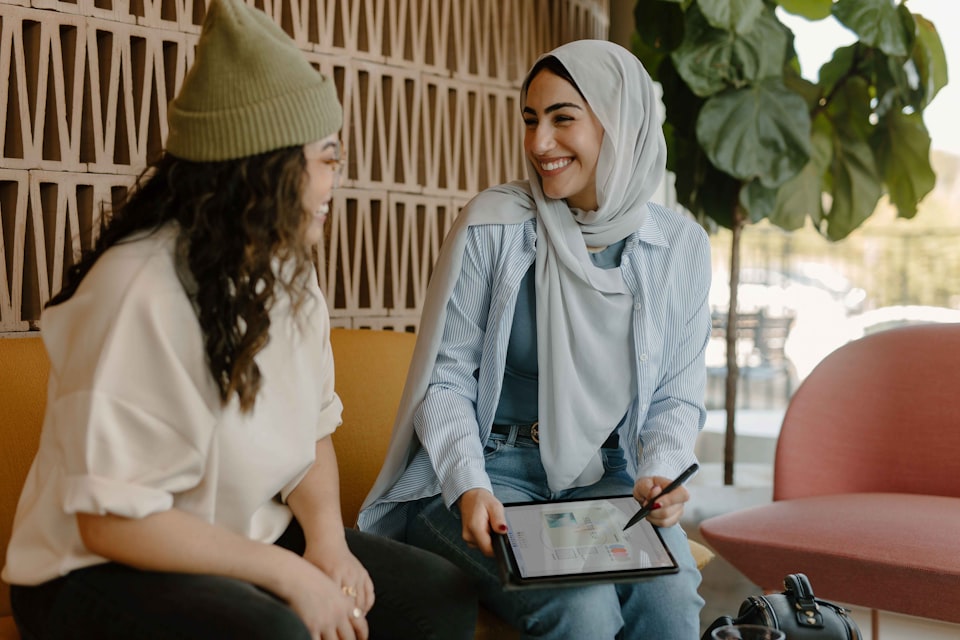Spotlight 👀: Ganddee Maps
Ganddee Maps makes it easier to shop sustainably. We sat down with Ganddee Founder, Antoine Rondelet, to discuss tech's role in sustainable decision-making.

As worries about climate change rise, Ganddee Maps comes to the forefront, guiding consumers to make ethical choices.
We chatted with Antoine Rondelet about the growing popularity of sustainable options and how tech can help us make smarter decisions.
Cutting through the sustainability fog
Ganddee arms people with the knowledge to make better purchasing decisions. With a rising tide of climate anxiety, both B2B and B2C buyers are gravitating towards more sustainable and transparent practices.
A technologist by trade with a background in Blockchain, Antoine Rondelet created Ganddee in response to this shift, providing an accessible platform for identifying sustainable businesses across devices.
Traditional searches often fall short in discerning authentic sustainable businesses, while Ganddee brings clarity, emphasising the importance of verifying sustainability claims.
Imagine you're in London, with a meeting in a few minutes, and want a quick coffee. Where to go? Just input what you're looking for into Ganddee, and it gives you results. Simple as that.
Antoine explained, "When you click on a store, we provide information about its sustainability credentials. For example, you might see a shop isn't certified or doesn't have an impact page detailing its sustainability efforts. Take Allbirds, for instance.
We verify its B Corp certification by linking to the B Corp directory. We do this for all businesses, examining many certifications like B Corp, One Percent for the Planet, and more. We're dedicated to making sustainable choices as convenient as possible. By doing so, we believe we can make a real difference.
As we're London-based, we're using the city as our testing ground, but we'll be expanding to other cities soon."
Essentially, Ganddee unifies fragmented data sets into a single, user-friendly platform. Sure, you could Google this information, but convenience rules.
There's no one-size-fits-all approach
The rise of sustainability as a trend is a double-edged sword. While it drives demand for green products, it can also lead to misleading claims from both uninformed and intentionally deceptive businesses.
Sustainability is a spectrum, which is why Antoine advises small businesses to prioritise transparency, even if it's as straightforward as sharing their story and values, to build a genuine connection with their audience. He advocates a scientific and methodical approach due to the complexities of the 'green' journey.
"Expecting every shop to tick every box would leave none listed, as it's an unrealistic expectation of total green practices and supply chain omniscience. Businesses have to balance their world impact and financial considerations.
So, while some data points may initially be missing from our listings, we stress ongoing improvement and increasing transparency over time," says Antoine.
For businesses, especially small ones striving for a sustainable model, transparency is paramount. It doesn't necessarily mean obtaining countless certifications, though that makes it easier.
It can be as simple as articulating who you are, why you started the business, and what your values are. This builds a personal connection with your audience, aligning their expectations with your practices.
Science, Tech and Context
Technology significantly impacts our lives, with its capacity to transform vast data into digestible insights, benefiting not just data scientists but the public as well.
For example, there's growing demand for companies to candidly disclose their environmental impact, including the embedded costs of their infrastructure like data centres.
As a technologist, Antoine understands this dual nature of technology and commits to responsibly harnessing its power while remaining mindful of its own environmental impact.
According to Antoine, "The tech industry often looks to technology to solve problems, sometimes even those it created. But we must remember that digitalisation and the mass production of tech components come with significant environmental costs.
We live on a finite planet, and infinite growth is not possible. So while technology can solve many problems, it can also create them. Let's ensure we're using it wisely."
While perfection is not expected, honesty about current practices and potential areas of improvement builds trust.
Future of sustainability
So what advice does Antoine have to give fellow Founders, small business owners and leaders?
"I hesitate to give advice as a so-called guru, but I would urge everyone to consider the future they desire. If experts have been sounding the alarm for a considerable time about rising temperatures and ecosystem damage, even a slight chance that they're correct should spur us into action.
"It comes down to a simple choice: keep your eyes closed or decide to open them. This is why I believe it's crucial for every corporation, especially large public ones, to align with the scientific consensus and adapt to emerging business models.
"Ignoring clear trends in ESG and the growing consumer demand for sustainable goods is nonsensical from a risk perspective. If you're in the business of making money, why not tap into this burgeoning market authentically instead of dismissing the science?"
Building transparency and trust is a long-term process. Seek help when needed; collective action is the only way to effect meaningful change.
As the effects of climate change become more apparent, buyers will increasingly demand products that align with their values. Businesses, in turn, will want to maintain their market share in an increasingly competitive market.
By providing people with the information they need to make informed decisions and supporting businesses in their efforts to become more environmentally responsible, we can all play a part in protecting our planet for future generations.
Missed the live conversation? Listen in!
Check out this fascinating discussion between Liana Fricker, Founder of Inspiration Space and Antoine Rondelet, Founder of Bluteshi, to take a deep dive on how technology empowers ethical consumer choices and accelerates how create a brave new world.




